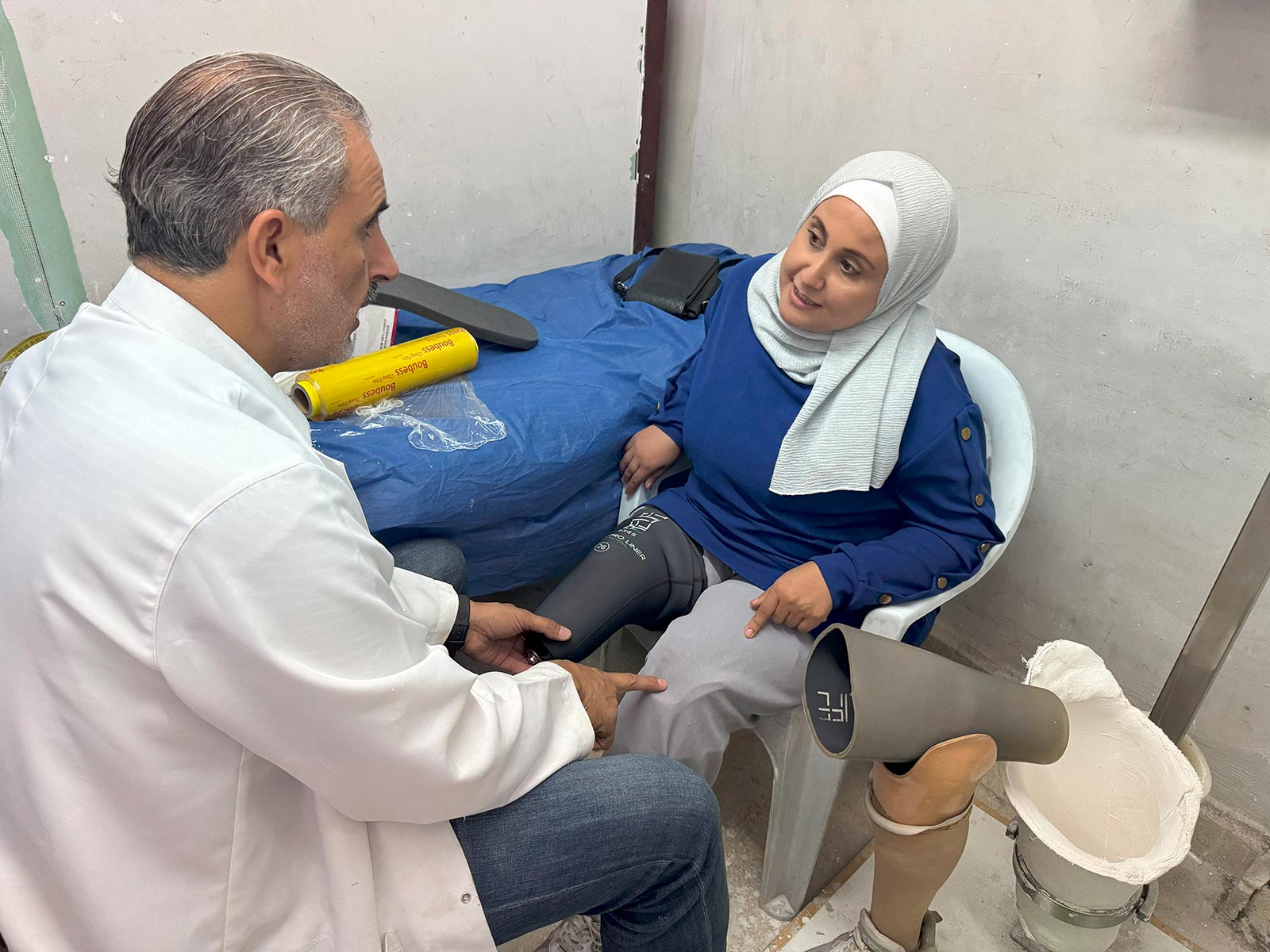 Jehan receiving free maintenance for her artificial limbs at the Rehabilitation and Artificial Limbs Centre. Photo credit: WHO Syria.17 September 2024, Damascus, Syria – Improving Diagnosis for Patient Safety, the theme of this year’s World Patient Safety Day – observed annually on 17 September – calls global attention to the critical need for timely and accurate medical care. It is a message that resonates deeply in conflict-affected Syria.
Jehan receiving free maintenance for her artificial limbs at the Rehabilitation and Artificial Limbs Centre. Photo credit: WHO Syria.17 September 2024, Damascus, Syria – Improving Diagnosis for Patient Safety, the theme of this year’s World Patient Safety Day – observed annually on 17 September – calls global attention to the critical need for timely and accurate medical care. It is a message that resonates deeply in conflict-affected Syria.
The experience of Jehan, a 38-year-old woman from Al-Dhiyabiya in Rural Damascus, provides a reminder of the devastating consequences of delayed care. Jehan’s life changed in 2012 when conflict reached her neighbourhood. Returning home to retrieve essential items for her children, Jehan was severely injured by a shell. When she finally reached Al-Mouwasat Hospital in Damascus the doctors who examined her had no choice but to amputate both her legs.
"I spent two months in the hospital, grappling with the physical and emotional trauma of losing my legs. To make matters worse, my husband went missing and I haven’t heard from him since. The transition from being an active mother and wife to someone who needed constant help was incredibly difficult," said Jehan.
During her treatment at Al-Mouwasat Hospital, the possibility of prosthetic limbs was mentioned and Jehan received a referral to the WHO-supported Rehabilitation and Artificial Limbs Centre in Damascus. Overwhelmed by despair at her situation, Jehan didn’t visit the Centre until 4 years later when, with her family's support and accompanied by her mother, she finally went.
"The doctors were extremely supportive. They immediately took measurements for my prosthetics, which were provided free of charge and fitted within a week. I received a month of training at the Centre on how to walk with my new limbs," said Jehan.
Dr Iman Shankiti, acting WHO Representative to Syria, highlighted the importance of WHO support for the Centre since 2015, stating: "WHO’s continued assistance to the Rehabilitation and Artificial Limbs Centre is essential, especially as the crisis increases demand. Psychosocial support is also crucial to provide comprehensive care for these patients”.
Today, Jehan leads a more independent life. She works at a bag-printing shop to support her children and says she feels "an empowered woman again”.
Head of the Rehabilitation and Artificial Limbs Centre Dr Rafif Dahia said: “Our centre has become a lifeline for Syrians with disabilities. We've grown from treating 15 patients a month in 2001 to managing 50 to 60 cases today. All services are provided free of charge”.
In 2023, WHO’s support helped over 1350 people receive prostheses and 640 staff members were trained or retrained to ensure continuation of this essential work.
Jehan's story is a testament to the resilience of the human spirit and the power of timely medical care. As we observe World Patient Safety Day 2024, Jehan’s journey from injury to recovery serves to underline the critical role that access to health care and accurate diagnosis play in preventing lifelong disability.


